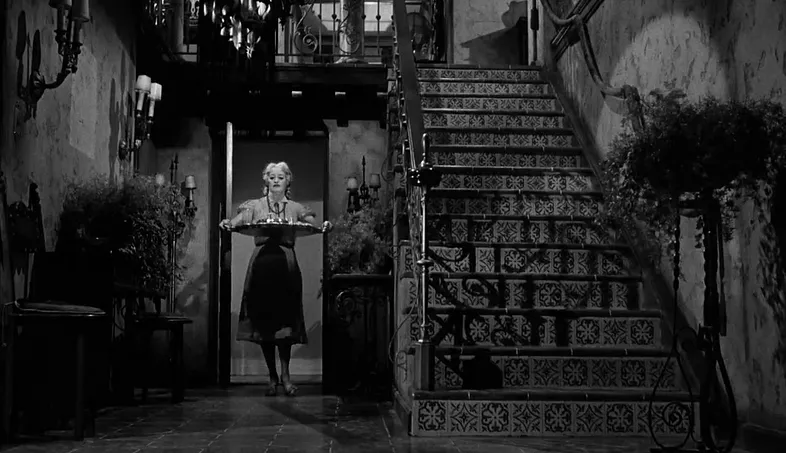Whatever Happened To Baby Jane? (1962)(Draft)

A terrifying performance by Bette Davis as the tyrannical 'Baby' condemned to care for her paraplegic sister Blanche dominates this entertaining film.
It's an absorbing watch for two reasons. The lead characters are larger than life and play out a grotesque drama; and there is genuine suspense as you wait for someone to fall down the very prominent staircase, and for the inevitable revelation at the climax which is signalled in the early scene showing the car crash: what really happened to Blanche and baby that day?
Crawford, know for her strong roles, plays against type as the vulnerable sister. In some ways, she's not given much to do except to look weakly into camera, and to be the butt of Baby's violent and at times calculating temper. Secondary characters are just as strange as the two leads, with the pair playing the Flaggs (Victor Buono and Marjorie Bennett) just shouting at each other throughout their scenes). Only Maidie Norman as Elvira gets to resemble a normal human.
The house where Baby and Blanche live bears some deliberate resemblance to the home inhabited by Norman Bates and his mother in Psycho. It's clear that Hitchcock's classic influenced studios into accepting similar stories with harsh and unpleasant storylines that would shock viewers, though the direction of Robert Aldrich (Dirty Dozen, The Killing of Sister George) and the cinematography of Ernest Haller (Gone With The Wind, Mildred Pierce) are mostly second rate compared to what was achieved by the master of suspense and the less well-known John Russell. The score by Frank DeVol ladles on the melodrama.


